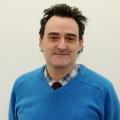An historian who fled Nazi Germany as a child refugee and later taught for three decades at the University of Southampton has returned there as he celebrates his 100th birthday.
Dr Edgar Feuchtwanger who lives near Winchester and saw Adolf Hitler in the flesh, visited a new exhibition called University of Southampton: A Place of Refuge, which features his personal story.
His visit coincides with the university achieving University of Sanctuary status, recognising its commitment to creating a culture of safety, inclusion and support for refugees.
Edgar, who was appointed OBE in 2021 for services to Anglo-German understanding and history, remains one of the university’s History department’s longest serving members of staff, having taught at the university from 1959 to 1989.
Reflecting on its new University of Sanctuary status, Edgar, who turned 100 on September 27, said: “Unfortunately the world is full of conflict, so it is important that there is a place for refugees. The world should be more tolerant and make less people refugees. It’s not a nice thing to happen, and my experience was a good one. It felt like I had left an evil empire once I arrived in the UK.”
Edgar was born to Jewish parents in Munich in 1924. As a child, his family were neighbours of Hitler on the Prinzregentenstrasse, Munich, occasionally seeing him in passing.
“I don’t think there are many people still alive who have seen Hitler face to face,” he said. “Some might think it’s remarkable."
Edgar was 14 when the Gestapo arrested his father during the infamous Kristallnacht, when 30,000 Jews in Germany and Austria were detained, hundreds died, and Jewish stores and synagogues were ransacked. His father was released six weeks later, and the family fled to England.
The University of Southampton: A Place of Refuge exhibition has been curated by the Parkes Institute for the study of Jewish/non-Jewish relations. It features the life stories of seven refugees from the 1930s who all became academics at the University of Southampton.
As well as Edgar, it features Professor Gabrielle Ganz (Law), Professor Martin Fleischmann (Chemistry), Professor Josef Frankel (Politics), Professor Eric Zepler (Electronics), Professor Karl Weissenberg (Physics) and Professor Leslie Brent (Medicine).
Neil Gregor, Professor of Modern European History and Director of the Parkes Institute, said: “The stories told here vary enormously – the individuals concerned came from Germany, Poland, the present-day Czech Republic and Ukraine, and from a wide variety of backgrounds. Individually, their stories are remarkable enough – but it is only when we put them together, as we are doing here for the first time, that we see what an incredible contribution Jewish refugees from Nazi Germany made to the University of Southampton.
“For us, as historians, it's a particular pleasure to honour Edgar Feuchtwanger's story and his contribution – we are delighted to have been able to welcome him here today.”







Comments: Our rules
We want our comments to be a lively and valuable part of our community - a place where readers can debate and engage with the most important local issues. The ability to comment on our stories is a privilege, not a right, however, and that privilege may be withdrawn if it is abused or misused.
Please report any comments that break our rules.
Read the rules here